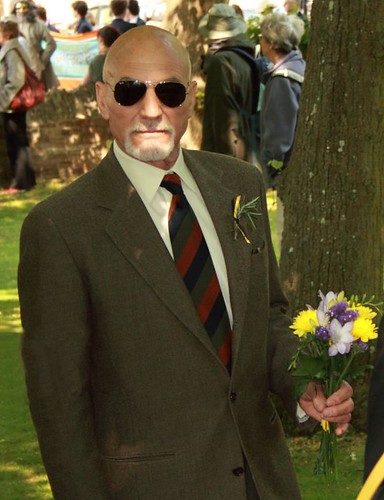
Right up front I should admit I have not read the play. Given that a new text for Cardenio distributes itself through over eighty percent of this publication for most of you my usefulness as a reviewer is at an end and the next few paragraph simple prose landfill. Sorry, and especially sorry to the publisher who was nice enough to send me a review copy. Luckily, the erudite textual analysis you probably require is available elsewhere, not least in this Illuminations blog post which aggregates a range of opinion, mainly about the theatrical performance at the RSC’s Swan Theatre.
There’s a long term academic discussion about the extent to which Shakespeare wrote his plays to be read as well as presented on the stage (particular in relation to Troilus and Cressida which didn’t have a recorded performance during his lifetime and Hamlet’s Second Quarto) and for many people this edition of Cardenio is part of a long tradition of reader’s editions that stretches right back to Heminges and Condell (though the copyright page does contain details for obtaining Amateur Performing Rights). If only they’d seen fit to include the original in the First Folio.
But as a fan of theatre, of Shakespeare and his contemporaries in particular, I want to experience Cardenio in its native environment, in performance. If I’m lucky it could be at the Swan, or if we’re all lucky through broadcast (does anyone have the telephone number for the commissioning editor at the BBC’s Drama on Radio 3?). For all the excitement of seeing how a company tackles a play you're familiar with, there’s still nothing to replace the thrill of experiencing the words for the first time as I discovered whilst gripped by ArkAngel’s recording of The Two Noble Kinsmen the other week.
Here, then is a toothless glance at the supporting text. The title page is entertaining, containing as many names as the credit role for a 90s Hollywood blockbuster. If this was a 90s Hollywood blockbuster, the credit role would surely read “Story by Miguel de Cerantes and Thomas Shelton. Screenplay by John Fletcher & William Shakespeare and Lewis Theobald and Sir William Davenant and Gregory Doran, Antonio Alamo & Duncan Wheeler”. There are more names, but this is all of the hands which physically wrote some of the words.
Director Doran seems to be in the defensive in the introduction, justifying his decision to adapt Double Falsehood, rather than simply present Theobald’s text (which is now a part of the canon as far as Arden is concerned). Just as Garrick in the 1740s when he tried to break over a century of theatrical tradition by returning as much of Shakespeare's own verse to various popular adaptations, Doran’s motive is to resurrect some of the show's psychological complexity by interpolating from Cervantes the scenes which Shakespeare’s narrative interests suggest would have been included but Theobald cut.
In an epilogue, framed as a letter to Theobald, Doran is pretty forgiving of his predecessor for all that but sits on the fence in relation to whether the text he’s been working from really was based on the play performed during Shakespeare’s lifetime or a fabrication. The Arden edition suggests he's on pretty firm ground, that it’s at least Shakespearean if not completely Shakespeare. Perhaps this version is good enough to supplant the Theobald as the standard text. Part of me wants to dive in and see. But I have to wait, I must wait. It would be a pity to do otherwise.
Cardenio. Edited by Gregory Doran, Antonio Alamo is published by Nick Hern Books. RRP: £9.99. ISBN: 9781848421806. Review copy supplied.







